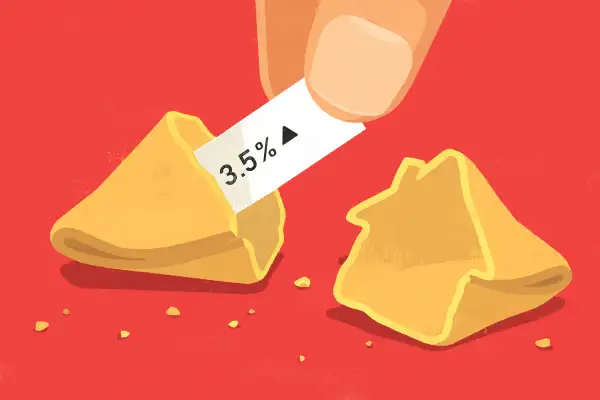How Long Will Home Prices Continue to Rise? 8 Experts Weigh In

A recession, an economic stimulus package, emergency interest rate cuts: it may seem like it’s 2008 all over again. But for the housing market the deja vu ends there—so far, at least. The Great Recession brought the housing market to its knees and caused a prolonged drop in home prices. This time around the cost to buy a house has actually increased across the country.
The median existing-home price for all housing types in June was $295,300, up 3.5% from June 2019 ($285,400) with prices rising in every region. June’s increase marks 100 straight months of year-over-year gains.
“Home prices rose during the lockdown and could rise even further due to heavy buyer competition and a significant shortage of supply,” said Lawrence Yun, the National Association of Realtors’ chief economist, noting that low inventory was a problem even before the pandemic.
Need more signs of housing market demand?
Sixty-two percent of homes sold in June were on the market for less than a month. Meanwhile, in June existing-home sales rebounded at a record pace, showing strong signs of a market turnaround after three straight months of sales declines caused by the ongoing pandemic.
Some real estate experts, however, worry that the surge in coronavirus cases and continued economic uncertainty could put a damper on the market. Here are eight predictions from housing industry experts on where home prices are headed next. The text has been lightly edited:
Ali Wolf
Who she is: Chief economist at Meyers Research, a real estate data analytics and consulting firm
What she expects: Meyers Research expects home prices to be up between 2% and 4% compared to last year, led by entry-level homes.
Her reasoning: Home sales slowed in March and April as the perfect storm of the recession, pandemic and battered consumer confidence put most purchases on hold. As Americans spent more time at home, though, many realized they needed a different space to accommodate their new lifestyle. This realization plus incredibly low mortgage rates resulted in a sharp rebound in demand with one big problem, there are very few homes on the market. This is the exact opposite problem that occurred during the Great Recession, where the glut of supply was one of the reasons home prices collapsed.
We believe home prices will finish 2020 above 2019 because there will continue to be a mismatch between supply and demand, especially for entry-level homes.
Ruben Gonzalez
Who he is: Chief economist for brokerage Keller Williams
What he expects: Home price growth should remain positive and could potentially accelerate during July. We may see strong sales in the fourth quarter contingent on the surge in coronavirus cases being contained.
His reasoning: The two key factors in place during the low in coronavirus cases were a strong stimulus in demand due to low mortgage rates and a serious pullback in supply due to social distancing and the shortages that existed previous to the pandemic.
So far, the primary demographics of homeowners appear to be receiving the least disruption in income due to the pandemic. This is likely to exacerbate existing inequality patterns in housing and wealth and is something that should be addressed in considering economic aid moving forward. In general, addressing the cliff created by the end of unemployment supplements and Paycheck Protection Program loans having run their course at the end of July will be critical for maintaining support for housing opportunity.
The recent resurgence in coronavirus cases in the South will likely start weighing on activity in the region that has been a strong source of home sales this year. To some extent, we have adapted to dealing with sales in the new pandemic environment with virtual tools, but consumer hesitancy to list homes is still a major issue.
It’s also likely that with the future school year heavily disrupted and massive uncertainty around how schools will proceed, that the normal seasonal patterns in home sales may be affected. This could lead sellers to postpone moves that would normally be confined to summer months into what is normally the school year in the fall.
Selma Hepp
Who she is: Deputy chief economist at real estate data analytics provider CoreLogic
What she expects: A slowdown of home price growth through the middle of next year
Her reasoning: The risk of a home price decline is largely driven by economic factors such as unemployment, the forthcoming end of enhanced unemployment insurance benefits at the end of this month, and the recent resurgence of COVID-19 cases across the country. The anticipated impacts of the recession are beginning to appear across the housing market, with a forecasted house price decline from July 2020 to May 2021.
Robert Dietz
Who he is: The National Association of Home Builders’ chief economist
What he expects: Home prices will grow in 2021, although that growth rate is likely to be at a rate lower than inflation.
His reasoning: We are not expecting very significant home price declines due to the fact that we have a shortage of housing in the United States. This particular economic downturn is very different from what we saw during the Great Recession where we had a very large amount of home price declines. That was due to the fact that we had a surge of foreclosures, which fed on itself and resulted in more inventory hitting the market, which then caused prices to fall further. Some of the growth rates we’ve seen in home prices in recent years, where prices were growing twice as fast as inflation, are going to slow. That’s just a natural consequence of going through a recession.
More Millennials are entering their 30s, which is prime home-buying territory. An interesting geography story is also playing out because of people not wanting to live in high-density environments. You see stronger demand in inner suburbs, the outer suburbs and exurbs and even rural markets. And when you’ve got solid demand, you’re going to have a positive factor in home prices.
Jeff Tucker
Who he is: Economist at Zillow, an online real estate marketplace
What he expects: Home prices will rise 3.2% in the next year.
His reasoning: That forecast is the result of our projection of two countervailing forces in the housing market: persistently high unemployment will depress demand for homes eventually, and will push some homeowners into distressed sales and foreclosures next spring. On the other hand, the incredibly low inventory on the market is forcing buyers to compete for the same limited selection of homes, giving sellers the upper hand in negotiations for now. Overall, we see such astoundingly low inventory and enough Millennial buyers entering prime ages to buy their first homes, armed with record-low interest rates, that prices will not dip at all in this recession.
George Ratiu
Who he is: Senior economist for home listing site Realtor.com
What he expects: With the supply of homes expected to lag demand, prices will likely remain on an upward trajectory for the remainder of 2020.
His reasoning: Real estate markets are benefitting from several positive cross-currents which are driving home prices higher. While the number of Americans drawing unemployment benefits hovered over 16 million during the week ending July 11, significant technology gains have enabled a larger number of workers to continue working remotely over the past few months, likely avoiding even higher unemployment.
Many of those still employed are seeking to move toward a post-pandemic new normal and follow up on plans postponed by the quarantine. These plans are driving a surge of demand for homes across the country, especially as buyers are watching interest rates drop to record lows.
The main challenge for this year’s market is the extremely tight supply of homes. While buyers returned to market in solid numbers, sellers have been more reluctant to wade into the uncertainty of a slow economy. The number of homes for sale has been shrinking by double-digits for the past few months, causing asking prices to accelerate at a faster rate than during the pre-pandemic period.
Laura Ellis
Who she is: President of residential sales at Baird & Warner, an Illinois-based real estate services company
What she expects: With so many people now working from home, and/or spending significantly more time at home, we expect interest in and demand for housing to continue to remain high. This will result in continued appreciation of real estate.
Her reasoning: We're currently experiencing a robust real estate market with tight listing inventory. We simply don't have enough homes to sell, particularly in the average or median price point. This has caused prices to increase. Before COVID-19, the Chicago metro area was experiencing a strong market with an average sales price of approximately $288,000 in the first quarter. Today, that average sales price has increased to approximately $322,000, an increase of nearly 12% so far this year.
Brad Hunter
Who he is: Managing director of RCLCO Real Estate Advisors
What he expects: Single-family home prices will remain flat on average for this year, returning slowly to rising average home prices starting in 2021.
His reasoning: Of course, averages can be misleading. The A projects in the A locations will likely remain strong, offsetting some of the weakness in the moderate price ranges. There will also be differences among metro areas. The economic and housing effects will be quite different in Las Vegas, Detroit, New York and Miami. Average new-home construction prices may not fall at all even if foreclosures start to happen.
Going into this crisis, there was an undersupply of housing and a low level of new-home construction relative to the pace of household formations and replacement demand. These conditions will continue to support new home prices and demand in the years to come.
People who buy new-construction homes are typically at an economic level that is less acutely affected by the layoffs that dominate the headlines. They have more secure jobs, much more money in savings, and many have participated in the strong rebound in the stock market.
People think about a home as a refuge, even more now than before the health crisis and the stay-at-home orders. And to the extent that new homes start to offer enticing healthy-home features that were not common in pre-COVID homes, that could add to demand for those newly-built homes.
More from Money:
How Low Will They Go? 6 Mortgage Experts Predict the Future of Rates
Becoming a Homeowner Isn't Easy. Here's How Three Black Families Did It

